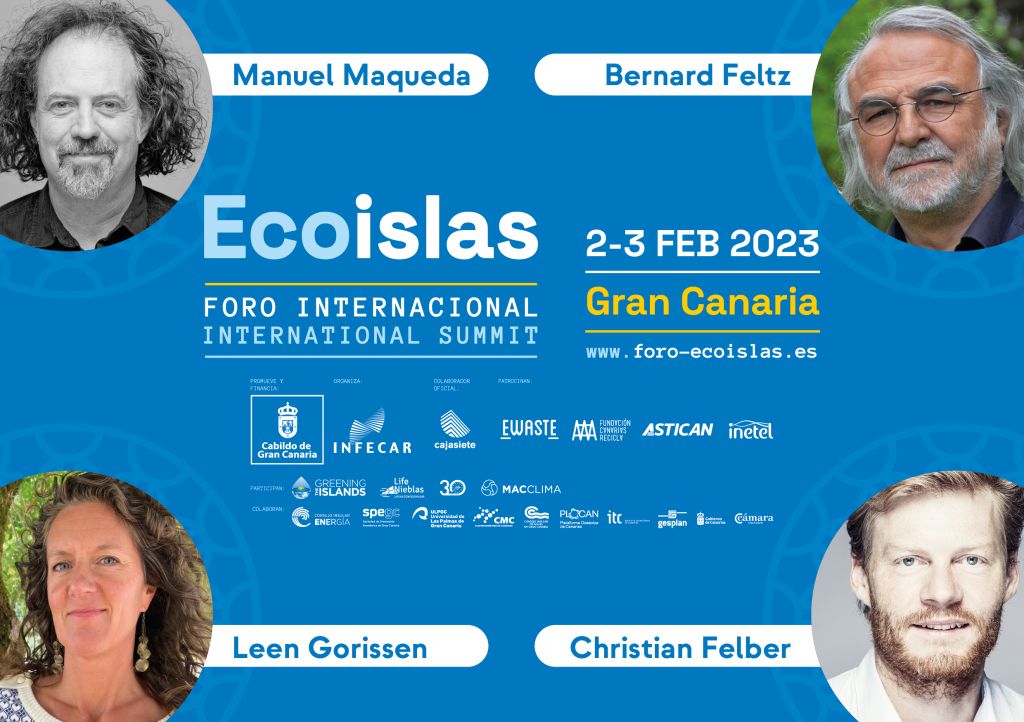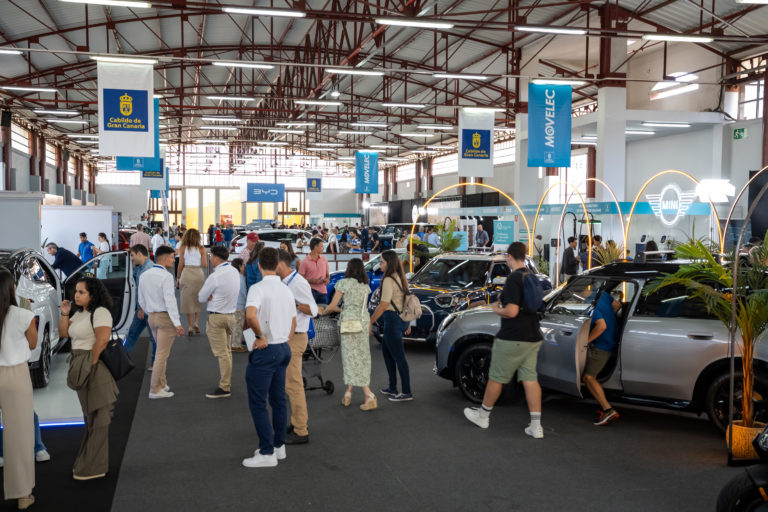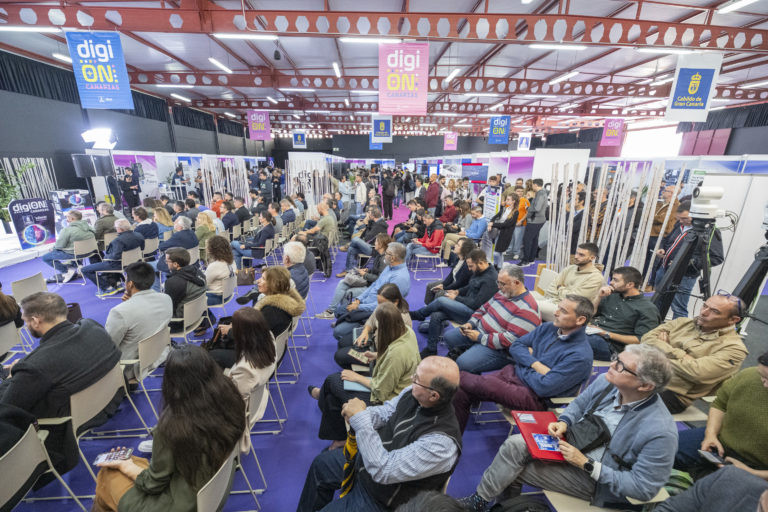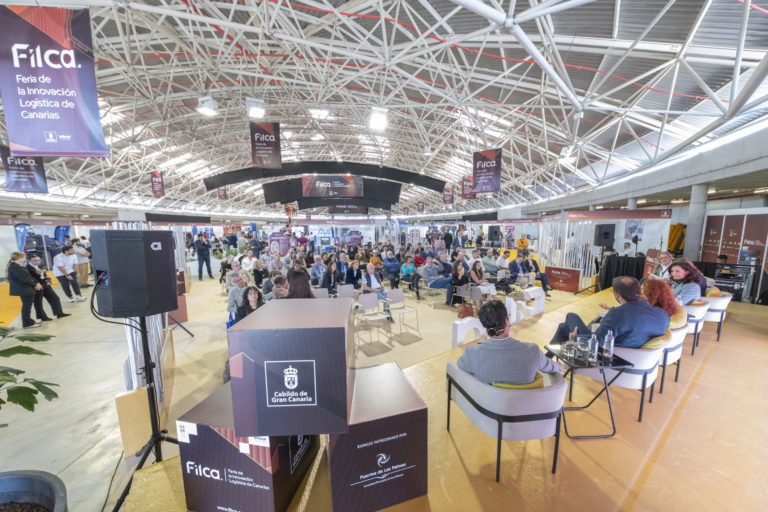- Manuel Maqueda, Christian Felber, Bernard Fletz and Leen Gorissen make up the panel of speakers who will lead the plenary sessions.
- Tickets to attend this Forum are already on sale on the website www.foro-ecoislas.es, with the option of attending the entire event or one of the two days.
The 1st International Ecoislas Forum will feature international, national and local speakers who will present best practices and discuss the needs and solutions provided in each of the four major areas that articulate the program: circular and blue economy; energy, water and mobility; adaptation to climate change; and regenerative tourism. This first meeting, on development alternatives in island territories, will take place on February 2 and 3 and is promoted and financed by the Cabildo de Gran Canaria and organized by Infecar.
Thus, the 1st International Ecoislas Forum will have four plenary sessions by Manuel Maqueda, Bernard Fletz, Leen Gorissen and Christian Felber. Maqueda is Professor of Applied Circular Economy and Regenerative Economics at Harvard University, as well as CEO of SUPER (Single-Use Plastics Elimination or Reduction). In his work, he develops the Regenerative Economics approach in Harvard’s graduate programs in Sustainability and has created UC Berkeley’s online Circular Economy course and UCLA’s online Circular Economy program.
Bernard Feltz is a Belgian biologist and philosopher, professor emeritus at the Catholic University of Leuven. Bernard Feltz’s work addresses contemporary debates both within the philosophy of science and the environment, sustainable development or the relationship between man and nature.
Leen Gorissen is also a biologist, specialized in Ecology and Regenerative Design and Bioinspired Innovation, as well as founder of Centre4NI, a catalyst that helps organizations and companies to innovate with nature. She is also a regular evaluator of innovation projects by the European Commission and an expert in sustainability transitions and advisor to H2020. Finally, Christian Felber is the driving force behind the Theory of the Common Good and has been a professor at several universities: Vienna University of Economics and Business, University of Graz, University of Klagenfurt, University of Applied Art Vienna, Schumacher College (UK) and others.
However, in addition to these four industry experts, the Ecoislas program consists of four different areas with parallel sessions that will delve into each of the areas that make up the program and will include panel discussions and case studies, in which more than 40 speakers will participate. The complete program, as well as details of all the speakers participating in this first forum, is available at the following link: www.foro-ecoislas.es.
Tickets on sale now
With all this, on February 2 and 3 Infecar will become the perfect place to enable a space for discussion, proposals and promotion of measures aimed at promoting the integral transition to a greener, more profitable, more self-sufficient and environmentally sustainable socioeconomic model with an insular approach.
Those interested in taking part in this event can purchase their tickets to attend either a single session or the two sessions that make up the full program at www.foro-ecoislas.es. The price is 7.50 euros for one day and 15 euros for two days if you are a student, and 15 euros and 30 euros, respectively, if you are a professional.
Thus, the Ecoislas International Forum is designed for a visitor profile interested in learning about the challenge of green jobs as a source to reduce unemployment levels; accessing specific information related to the four main themes; establishing collaborations between public, private and scientific institutions to promote innovative measures to address the challenge of climate change; and learning about policies aimed at mitigating and adapting to climate change.
This First International Ecoislas Forum is sponsored by Cajasiete, as official collaborator; with the sponsorship of Ewaste, Fundación Canarias Recicla, Astican and Inetel; the participation of Greening The Islands, Proyectos Europeos and Mac Clima; and with the collaboration of the Consejo Insular de la Energía, Spegc, the University of Las Palmas de Gran Canaria, the Clúster Marítimo de Canarias, the Consejo Insular de Aguas de Gran Canaria, the Plataforma Oceánica de Canarias, the Instituto Tecnológico de Canarias, Gesplan and the Chamber of Commerce of Gran Canaria.



